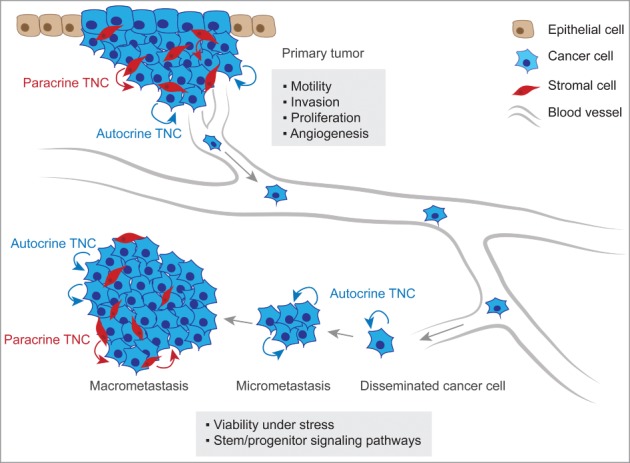Figure 2.

TNC function in metastatic progression. At the primary tumor site, anti-adhesive TNC properties lead to alteration of intracellular pathways in cancer cells inducing the formation of actin-rich filopodia, favoring cell motility and invasive behavior. TNC is also associated with increased cancer cell proliferation and promotes angiogenesis within the tumor. At the secondary organ site, autocrine TNC supports cancer cell viability in a microenvironment that can exert a strong selective pressure. In breast cancer, TNC engages stem/progenitor signaling i.e. the Notch and Wnt pathways thereby promoting growth of micrometastasis. The development of macrometastasis is associated with reactive stroma which becomes a significant source of TNC protein.
